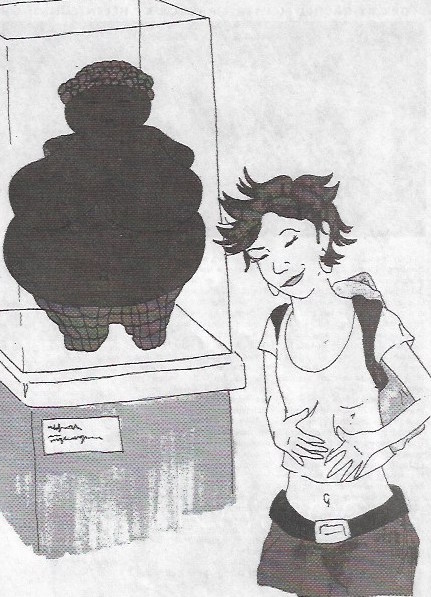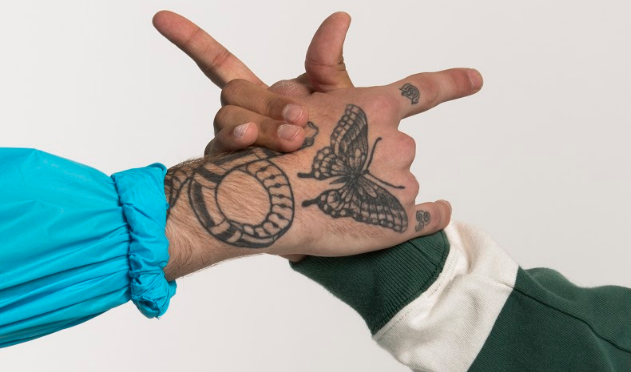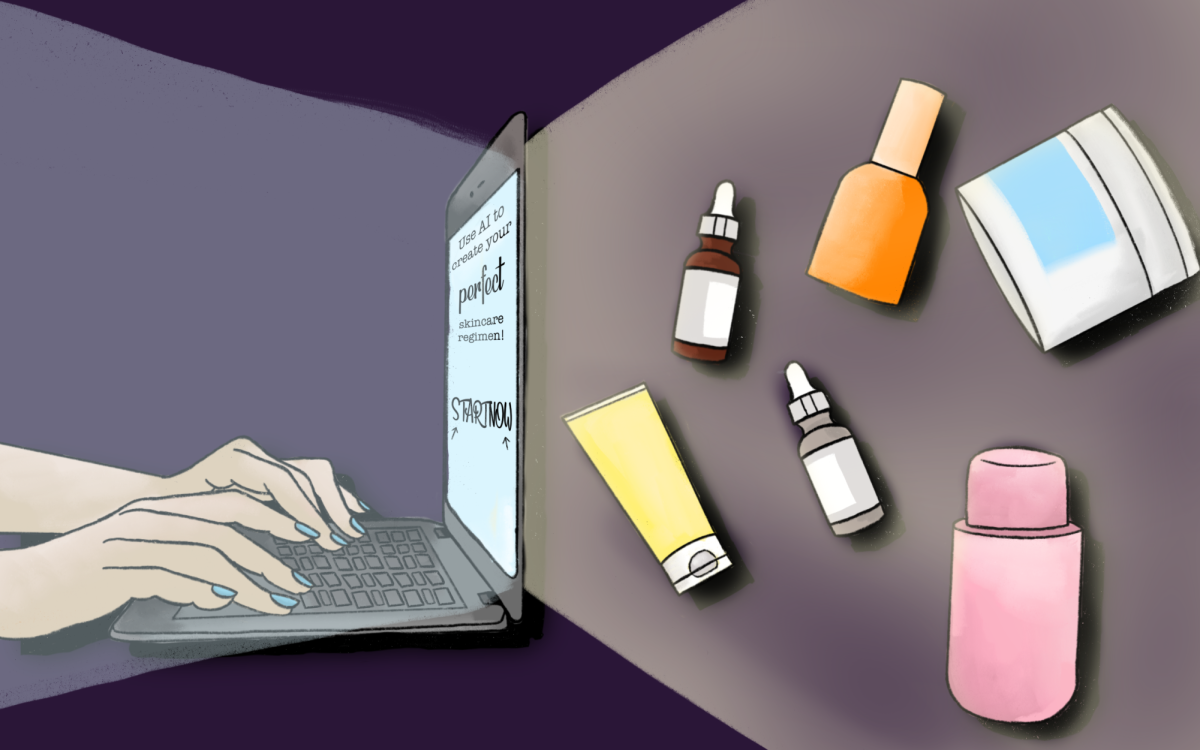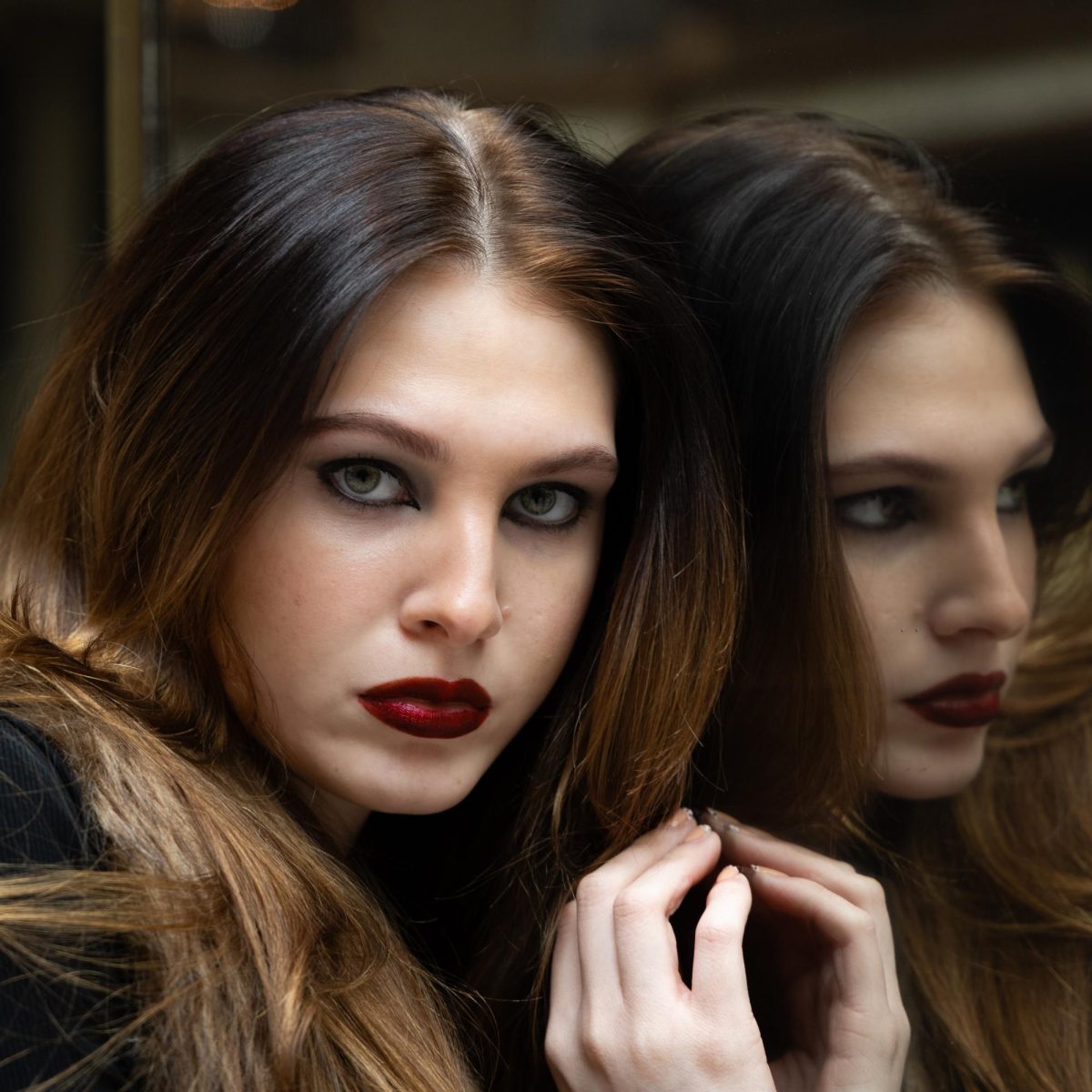You know the story: Girl hits puberty, girl reads too many fashion magazines, girl hates her body. It doesn’t matter if the girl is as slender as a broomstick or as voluminous as a small automobile— it’s practically inevitable that she will loathe her body. The statistics for eating disorders in the United States are so high you’d think they were contagious, and dieting is perceived as simply part of becoming a woman. The media are the likeliest culprits; the entertainment industry continues to uphold preposterous standards of beauty while subtly— and not so subtly— deriding normal body types. The newest fad is to use fat suits to turn skinny actors into fat actors. Sadly enough, although they are a blatant technique of ridiculing obesity, they are perfectly acceptable to American society. Some day fat suits may be seen for what they are— a cousin to the blackface makeup white actors used to don to impersonate black people.
The media aren’t going to change their tune anytime soon. Advertisers are making a load of money off our body anxiety— from cellulite cream to diet pills, they’ve got us by our pocketbooks. We have been duped into thinking that the only we can be successful and attractive is to be 5’10’’ and 115 pounds. If there is going to be a revolution, it has to start with us. Not only do we need to boycott the diet industry, we need to reconfigure the way we think and talk about our bodies. No more swapping thigh-disparaging comments with the girls or letting our self-esteem be dictated by the scale. We need to be proud of our imperfect selves, and we need to tell our stories.
My story is pretty common. I’m an intelligent, self-assured feminist. I write decent poetry, I sing in gospel choir and I am nice to my mother. Although I’ve done some crummy things in my life, I reckon I could be described as a nice girl. And I’ve spent the greater part of my life positively despising my body.
At a startlingly young age, I was socialized to believe that the superlative body is a slender one. I can only guess it was the combination of too much television and my sisters’ “Seventeen” magazines lying around the house. I remember sitting on the toilet, probably just months after becoming potty-trained, and looking at my little-girl tummy. I held it in my hands, a fleshy lump of baby fat, and swore to myself I would never, ever look at it again. It was just too disgusting. By the second grade, I consciously attempted to diet, and continually compared my slightly chunky body to other girls’ bodies. I never forgot a rude comment about my chubbiness; I can still hear the bitchy girl in third grade telling me that the reasons my boobs were bigger than hers was because I was fatter.
Like millions of other self-conscious girls, when I became a teenager, my body hatred evolved into body abuse. During my sophomore year, propelled by my desire to wear a bikini on a class trip to Florida, I eschewed dieting for full-fledged bulimia. Thankfully, a friend figured me out and made me swear to never purge again. For the rest of my high school years, I chose the much healthier route of exercise to control my weight— though I never once felt comfortable with my body.
Things got really messy again during my sophomore year of college. The summer before, I lost an enormous amount of weight from being sick. I dropped three sizes and weighed less than I had since the seventh grade. I didn’t care that I’d lost the weight on account of illness— the fact that I finally looked the way I had always dreamed of looking just intoxicated me. I wanted to keep it off, and I was willing to try anything. Since I had more money than I did as a high school student, I decided that rather than go for the proletarian finger-down-the-throat-method, I’d splurge on fancy diet pills. I took Dexatrim until the FDA removed it from the market (apparently strokes were just too nasty a side effect of being thin), and then I moved on to ephedrine/ caffeine products. When I ate more calories than my diet mandated, I’d pop a few laxatives and wait for the fat to flow out of me. Some days I just ate diet bars and celery sticks. Nevertheless, the weight came back, and I resumed hating every inch of my physique.
I now weigh more than I ever have. I am still not fat according to medical charts, but I am far from fitting into the blue jeans of society’s ideal woman. I still check my gut in every mirror I see, and neurotically think that a piece of chocolate is my archenemy. It’s a silly cycle— I berate myself for weighing more than I’d like, and then I berate myself for berating myself. I think I am actually to the point where I would actually rather accept my body for what it is than turn it into something it’s not. We must go further than finally saying “fuck off” to the illusive Barbie body— we must learn to appreciate the junk in our trunks. The only thing more offensive to society than a chubby girl is a chubby girl with aplomb— a chubby girl who loves her body (think Camryn Manheim). And, for that matter, a skinny girl who loves her body and an obese girl who loves her body (I suppose for political correctness, I’ll concede that supermodels should love their bodies too, but I still don’t like them very much).
So, here goes folks. I’m an intelligent, self-assured feminist. I write decent poetry, I sing in gospel choir and I am nice to my mother. Although I’ve done some crummy things in my life, I reckon I could be described as a nice girl. I have a fabulously voluptuous body that is the perfect vehicle for my spirit. My booty looks right fantastic when it is shaking on the dance floor, and I have so much muscle in my legs I could kick your ass if you did me wrong. I love my body— love handles and all.
In 2001, we started as Artemis, a KSU-based feminist magazine named after the Olympian goddess of the hunt, the moon and chastity. After 10 years of serving Kent State’s women through art and literature, we dropped everything but our “A” and started covering fashion, beauty and culture in under the name A Magazine in 2012.
This story was originally published in the spring 2002 issue of Artemis.









